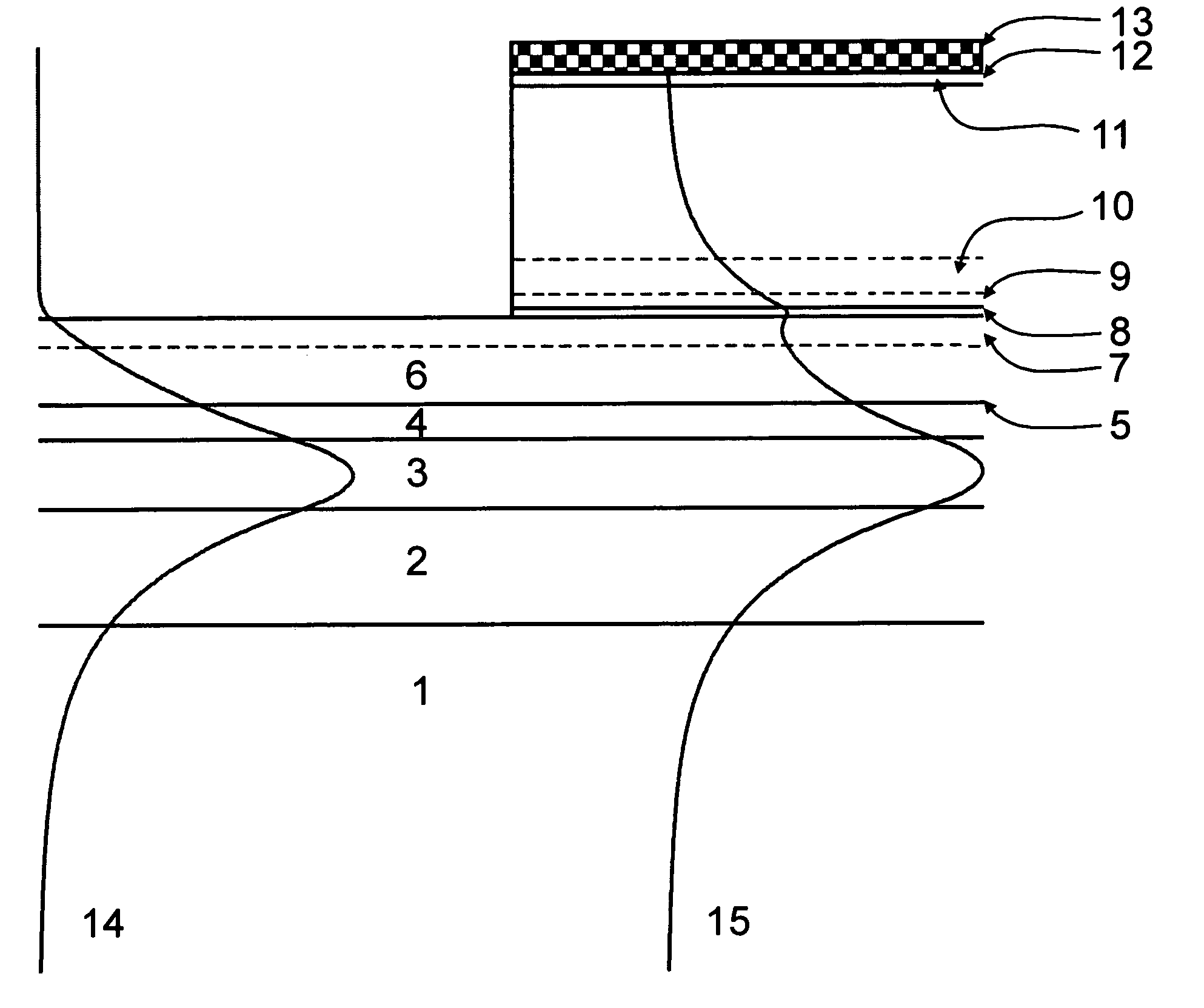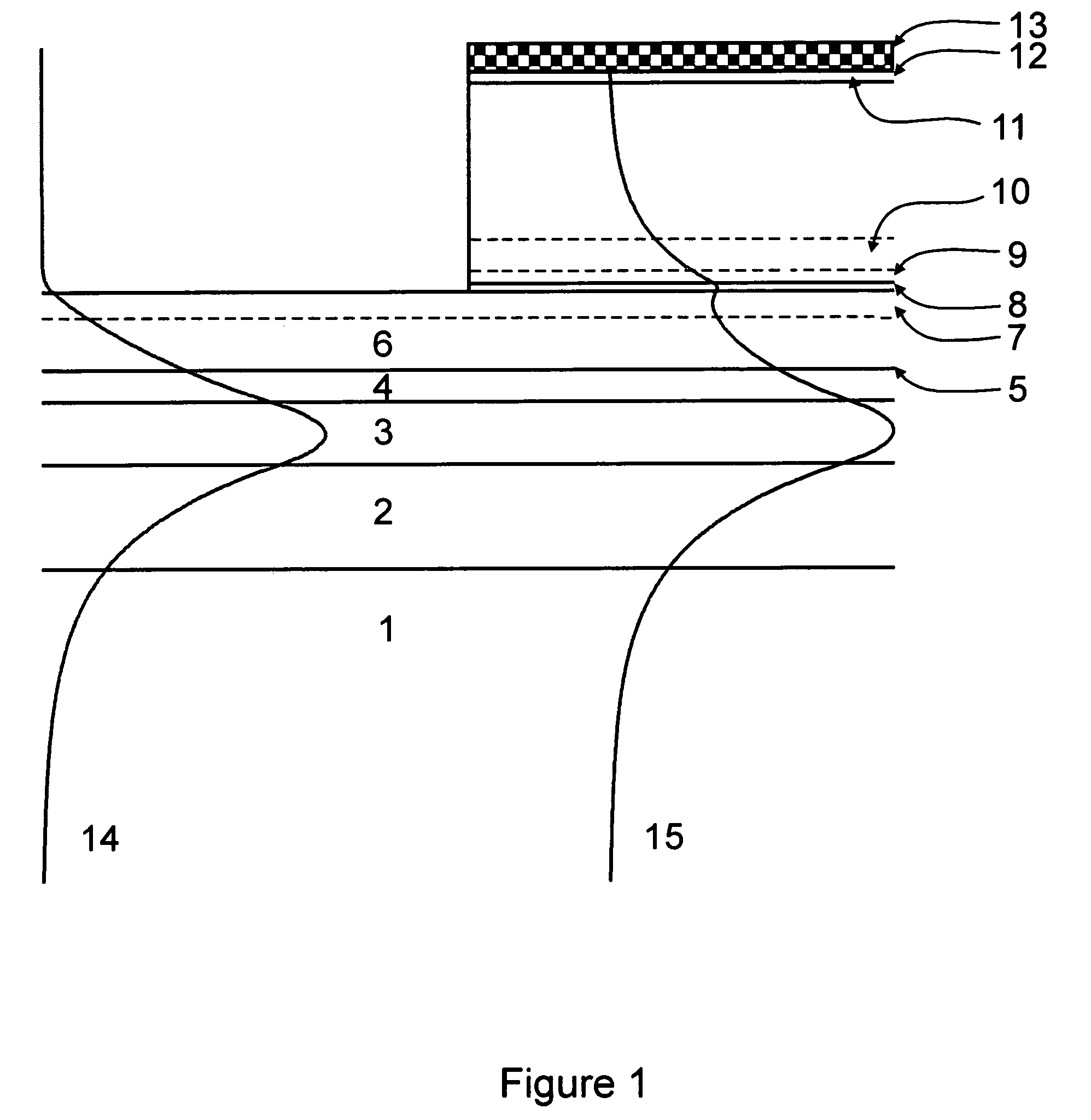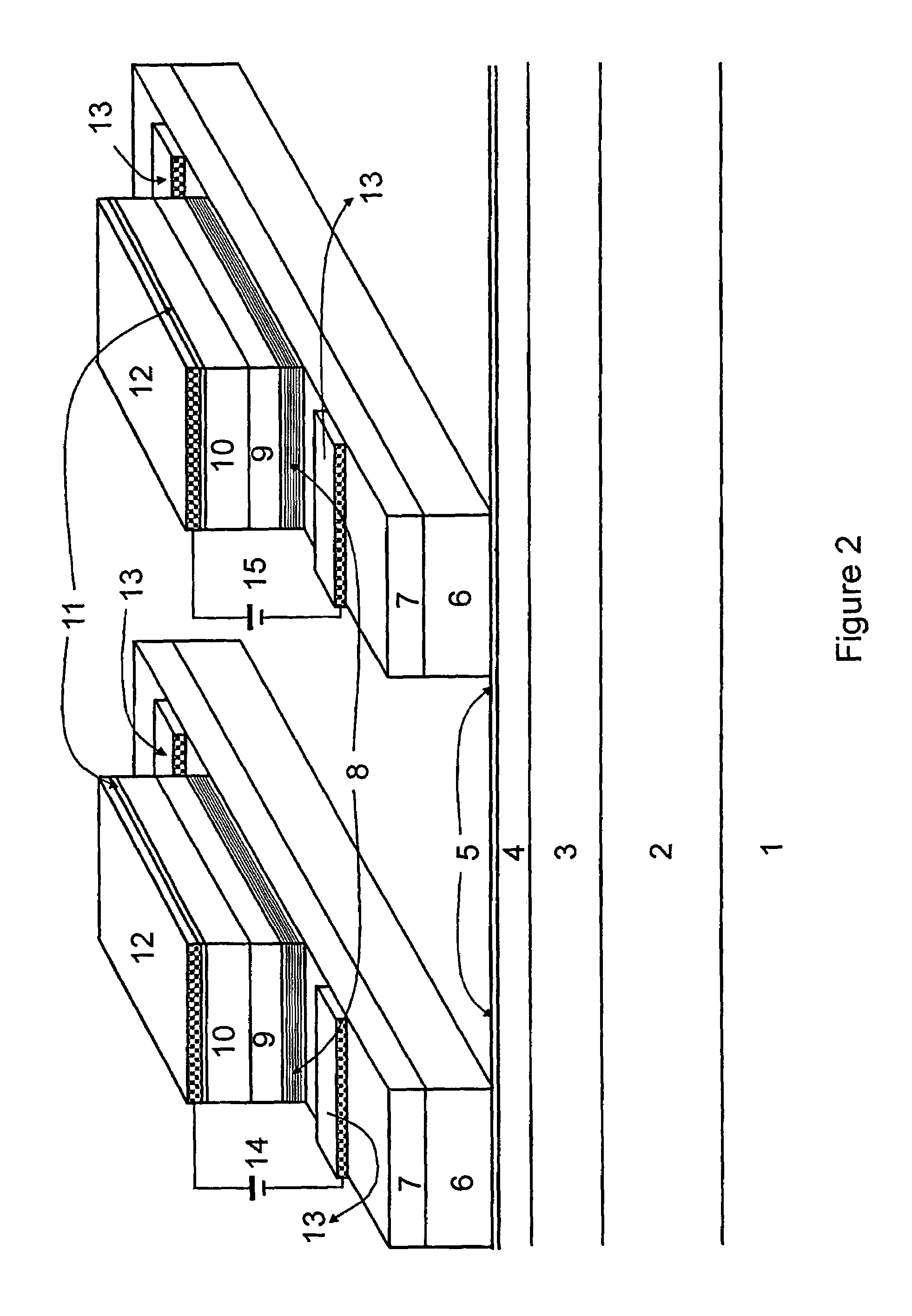Vertical integration of active devices within passive semiconductor waveguides
a semiconductor waveguide and active device technology, applied in the direction of optical waveguide light guide, optical element, instrument, etc., can solve the problems of inability to meet the requirements of the application, so as to improve the manufacturability
- Summary
- Abstract
- Description
- Claims
- Application Information
AI Technical Summary
Problems solved by technology
Method used
Image
Examples
example
Integrated Semiconductor Optical Amplifier
[0047]Another exemplary embodiment of the invention, in the form of a monolithically integrated SOA having the layer structure specified in Table III and the device layout illustrated in FIG. 4, is described. The distribution of the vertical mode field in the passive and active waveguide portions is close to that shown in FIG. 6 for the embodiment in the form of the EAA with the layer structure of Table IIB. The layer structure of the integrated SOA is similar to that of the integrated EAA, with the only difference being in the material of the active layer 8. As in the case of the EAA, it is optionally either bulk or QW material, in any event having a bandgap energy close to operating photon energy, Eg≈h-ω. In a particular embodiment with the layer structure given in Table III, the stack of 5 16-nm tensile-strained lnGaAs wells and 6 36.6-nm unstrained GaInAsP layers having a bandgap wavelength of 1.0 μm, i.e. the same as that in the quatern...
PUM
 Login to View More
Login to View More Abstract
Description
Claims
Application Information
 Login to View More
Login to View More - R&D
- Intellectual Property
- Life Sciences
- Materials
- Tech Scout
- Unparalleled Data Quality
- Higher Quality Content
- 60% Fewer Hallucinations
Browse by: Latest US Patents, China's latest patents, Technical Efficacy Thesaurus, Application Domain, Technology Topic, Popular Technical Reports.
© 2025 PatSnap. All rights reserved.Legal|Privacy policy|Modern Slavery Act Transparency Statement|Sitemap|About US| Contact US: help@patsnap.com



